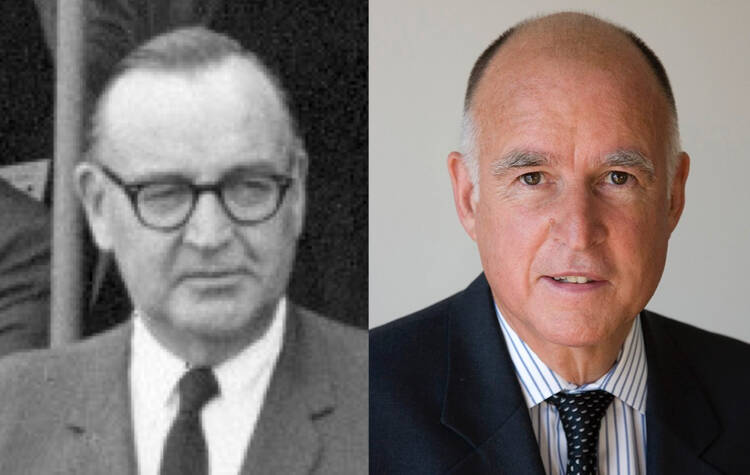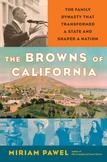Review: An authoritative guide to California’s most prominent political family
The late historian Kevin Starr’s five-volume history of California charted the shifting notion of the “dream” of the Golden State, a place where the American future, for better or worse, was continuously reinvented. For Starr, that dream was born during the Gold Rush, as that period’s dynamism, as well as its avarice, situated California on the leading edge of American capitalism, where it remains today.
Miriam Pawel’s masterly, multigenerational history, The Browns of California, takes as its subject the political dimensions of the California Dream as embodied by arguably its most prominent political family, which has produced two governors, Pat Brown and his son, Jerry. Instead of symbolizing capitalism, Pawel’s California is instead symbolic of the transformation of American liberalism across the middle decades of the 20th century and across the generational divide between a father and a son.
One of the many strengths of The Browns of California is the way Pawel projects the history of California onto the Brown family (including the political careers of Pat and Jerry Brown), lending intimacy and detail to what might have been a sweeping, superficial narrative in less capable hands.
Miriam Pawel's The Browns of California will stand as an authoritative guide to a political family and their fascinating, if confounding, home state.
The Browns played pivotal roles in a startling array of events, from the modernization of the University of California system to the recognition of the United Farm Workers union and the California State Water Project, Pat Brown’s mid-century expansion of the state’s aqueducts that has propelled California’s growth and contributed to its current environmental crisis.
The heart of the book, however, is more personal than political. We learn of Pat Brown, the old-school, Irish-American New Dealer and his son, the former Jesuit seminarian who would build on (and alter) much of his father’s legacy. As Pawel admits, there are many more questions to ask about what was gained, and lost, in this transition from one brand of American liberalism to another. In the meantime, The Browns of California will stand as an authoritative guide to a political family and their fascinating, if confounding, home state.
This article also appeared in print, under the headline “To govern is to serve,” in the March 18, 2019, issue.









